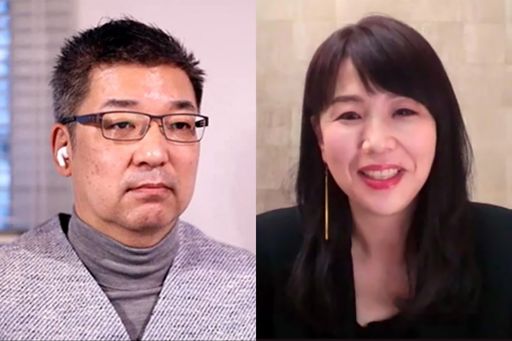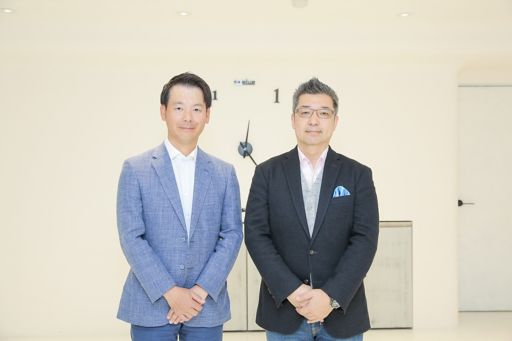The financial industry is simultaneously experiencing a global wave of tightening regulations and an evolution of innovations such as the emergence of cryptocurrencies (virtual currencies) and the application and development of blockchain technology. On the other hand, the use of electronic currencies is expanding in our daily lives and it’s fair to say that the environment surrounding "money" is changing dramatically from the past. So, what kind of goal will this trend move toward in the future?
In this article, we will introduce the discussions conducted between Eiji Miyakawa, founder of Digital Wallet Corporation, which provides a global mobile remittance service, and Masayuki Chatani of KPMG Ignition Tokyo.
Contents
- Reason for Making Global Mobile Remittance Service the Main Axis of Business
- How to Expand Overseas without Having to Develop Market from Scratch
- “Determination” to Realize Financial Platform Originating in Asia
- High-Touch Elements Are also Required for Applications
- Crypto Assets (Virtual Currencies) and RegTech
- Balance between Innovation and Regulation
- What Needs to Be Done in the Age of Interacting with Data?
- Substituting Nonverbal Information Will Be the Last Hurdle
- Profile of Interviewee
Reason for Making Global Mobile Remittance Service the Main Axis of Business


(Masayuki Chatani, Representative Director & CEO of KPMG Ignition Tokyo and CDO of KPMG Japan (left), Eiji Miyakawa, Founder & CEO, Digital Wallet Corporation (right) ) *Professional affiliation and official position in the article are at the time of publication.
Chatani: I’ve known you for a long time and I’m very happy to have this opportunity to talk with you. It seems that Digital Wallet’s global mobile remittance service, “Smiles Mobile Remittance,” is highly regarded as a service that supports the daily lifestyles of users who are globally active. The fact that the inconvenience of conventional international remittance, such as complicated procedures that required many days and high fees, can be solved with a single smartphone makes this service useful not only for foreigners working in Japan but also for those who work in other countries in similar ways.
You yourself have been involved in the development of digital currency services for some time. Can you tell us why and how you became independent and decided to focus on this service?
Miyakawa: I was just 40 when I started my own business. Actually, I’ve started about five companies, and Digital Wallet is currently the one with the largest number of employees. I think Digital Wallet can be regarded as an example of an experience-based venture, as the business has expanded in areas that I have had experience in.
Until I started my business, I had an opportunity to work around the world while managing a highly diverse group of people to enrich my understanding of the knowledge and regulations of online services and to become well-versed in foreign situations. I believe that I’ve also acquired the ability to come up with a clear image when commercializing products.
Another reason for the success of the business is that I have a good understanding of “how far I can go” in the industry, and in particular, the fact that “I know the turf," which is “an extension" of what I have seen and come to know in my previous jobs.
How to Expand Overseas without Having to Develop Market from Scratch
Chatani: Looking at Digital Wallet's website, I can see that you’re aggressively expanding your business overseas, such as concluding a business partnership with a bank in Bangladesh and acquiring a local corporation registered as a remittance service provider in Canada.
As you are operating an international remittance business, it’s natural for you to have a footprint overseas, but what kind of decisions led to operating actively in these countries?
Miyakawa: Generally speaking, when a domestic IT company expands overseas, it usually establishes itself in the Japanese market first and then expands into the U.S. market. However, in this case, the customer demographics will change from Japanese to Americans or Canadians, and it will be necessary to devise marketing and market entry strategies for completely different demographics almost from scratch.
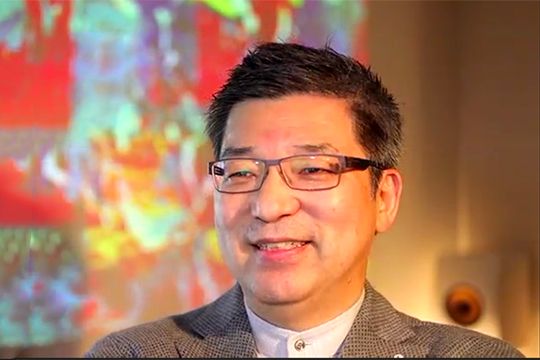

On the other hand, since our business model is based on non-Japanese in Japan, such as Indonesians, Vietnamese and Filipinos, even if we were to expand into the US market, our customers could be people with the same attributes that we have targeted in the Japanese market. Although they live in different places, they are from the same country, have the same education and share the same cultural background, the only difference being whether they went to the U.S. or Japan. This gives us an advantage when we devise our strategy.
I feel that the benefits are significant, especially with regard to culture, because we can share the same marketing content creativity, in other words, taste, branding and messaging. We’re aiming to achieve this development approach by trying to create a thoroughly successful model in Japan and then expanding it to markets with the same attributes overseas. Therefore, we naturally choose and proceed to expand in countries that have a large number of users with the same attributes as the customers we have in Japan.
Chatani: I see. The method you just mentioned seems to be working in the world of hobbies. There are many cases where the market volume is not so large in one country but there are a million fans if you look around the world. So, that means that you’re devising your strategy based on this concept.
“Determination” to Realize Financial Platform Originating in Asia
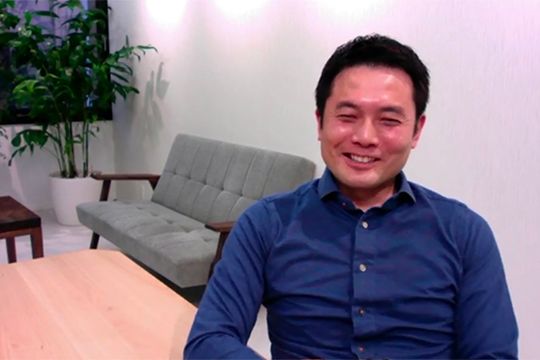

Chatani: I think Bangladesh is the latest location you have expanded into, which has been announced already, but it seems likely that the remittance business will increase in Vietnam and other Southeast Asian countries going forward. It seems that there are many countries where you can horizontally expand your service.
Miyakawa: That’s right. In Canada, we acquired a company that holds a license and have already started to provide service. We’re also in the process of establishing a company in the U.S. and obtaining licenses in various states. We opened a base in Singapore in 2022 as well.
The financial industry is dominated by Western-capitalized companies, and credit card networks such as VISA and MasterCard are strong. SWIFT, which has become like a global standard with members including the world's major financial institutions, is also headquartered in Europe and can be considered to be one of the Western financial platforms.
In this context, it was one of my motivations when starting a business to develop a financial platform originating in Asia, preferably in Japan, and I’m determined to achieve this goal.
Chatani: I get deeply moved when I hear the word "determination." Why are you determined to do so?
Miyakawa: Working in the IT field, I have my own thoughts about the giant IT companies in Europe and the U.S. Some people have described Japan as an "IT loser" because of its history of having similar ideas but failing to realize them at every attempt. If we’re still recovering from the “shock of that defeat,” I want to "retaliate" as a Japanese venture company providing international remittance and payment services.
On the other hand, looking at the current situation by unraveling history, even though Western countries have prospered since the Industrial Revolution over the last 200 years or so, Asia's GDP had historically accounted for the majority of the world's GDP before that, and the recent population growth and economic revival in Asia have been quite impressive. In this context, I thought that a financial platform originating in Asia should emerge.
As there is unfortunately no such thing now, we’re hoping to create one. Our business in Japan is going well with revenues increasing and we’re very happy with the response we’re getting.
Chatani: If there are barriers in realizing it, what do you think they are?
Miyakawa: In the past, it was the norm for companies with large capital to make large acquisitions and investments. The ability to raise capital was an important factor and Japan was not able to match the abilities to raise venture capital in the U.S. and China. In this sense, the COVID-19 pandemic has somewhat served as a tailwind.
When there is a global depression, prices of things such as land, buildings, and companies tend to fall. I feel that this has happened in an instant over the past two years, and we have had very good opportunities since just a few months or so after the COVID-19 pandemic became serious worldwide. Until now, it has been quite difficult to acquire local subsidiaries, but the moment the economy was in turmoil due to COVID-19, we were able to seize the opportunity to expand overseas all at once.
High-Touch Elements Are also Required for Applications
Chatani: Now let's move on to the topic of increasing users. I thought that the “Smiles Mobile Remittance” application was very sophisticated in terms of usability and design. When creating the application, what was your approach in regard to the design concept and user experience?
Miyakawa: Digital Wallet provides B2C and B2B services but I feel that the applications for the two are created with completely different policies.
In the past, many applications that were created were very simple, well-functioning and logically organized, and that’s what we were aiming for in the beginning. However, since the spread of COVID-19, I feel that there has been a growing demand for emotional marketing and content as well as a participatory "something" that improves the user experience, rather than just functionality and price.


Therefore, even though we used to organize information, sort it and arrange it into large to small categories, we changed our design policy to focus on emotional UX, such as placing a more emotional message on the top and structuring the top screen by bringing forward content that strikes a chord with users even if it’s logically false. This seems to be accepted by users.
Chatani: Hearing that, it made sense to me why Digital Wallet's company introduction video was created and why it was structured in that way. It’s a very high-touch video.
We can easily understand how diverse the people in the company are just by watching the three-minute video and we can tell that it’s a fun company. The high-touch structure of the application makes sense when you consider that it’s provided by such a company.
KPMG Ignition Tokyo also has a large number of foreign nationals, coming from 28 different countries. The number of native languages is about 32. In order to understand such diversity, we try to have employees make short movies that introduce their countries of origin and show them at company-wide meetings.
The videos are quite interesting and I enjoy watching them. I feel that the values are similar to that of your company's video. I realized again that having employees enjoy doing various interesting things is very important in creating the atmosphere of a company.
Crypto Assets (Virtual Currencies) and RegTech
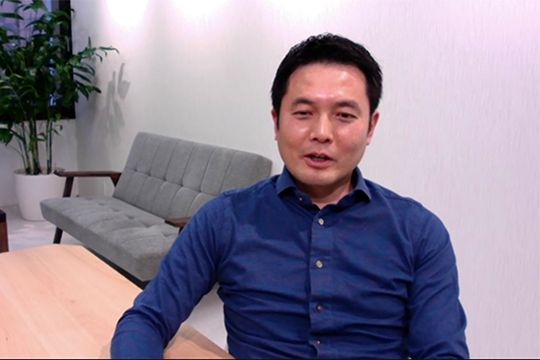

Chatani: This may be related a little bit to the topic of multinationalization but I’ve been wanting to ask you about crypto assets (virtual currencies) as well. It’s been claimed that the idea behind the origins of crypto assets was the need for something alternative instead of relying on existing authorities. How do you view crypto assets, which also have such characteristics, and how do you envision your future business?
Miyakawa: First of all, our business is currently handling legal currencies issued by states or central banks. Though we’ve been developing systems using blockchain as a technological development, we believe that in order to move monetary value, it ultimately comes down to the question of how to combat money laundering. In fact, it’s not technically or mechanically difficult to build a market where crypto assets can be traded directly, but I believe that whether or not we can resolve the problem of money laundering will be the watershed for the movement of value that can be widely used in society across nations.
For our part, we’re currently developing our services based on the assumption that legal currencies that provide stable tax revenues will continue to exist as the mainstay of economic activities. This is based on the premise that if tax revenues disappear, the nation will be destroyed, and if the nation is destroyed, public safety will deteriorate and the economy will be adversely affected.
However, whether it is crypto assets or the existing SWIFT system, if we look at the big picture, they are all mediated by something. There are gatekeepers between transactions, and costs such as commission charges are generated. Based on this understanding, it’s possible to say that various crypto assets that enable more direct person-to-person transactions are not so different in essence from our international remittance business model of building a direct remittance infrastructure.
After all, I think that the greatest advantage of the Internet is its "P2P (Peer to Peer) direct connection.” Our conclusion is that there is nothing that beats this and so, our ultimate goal is to realize P2P transactions, although we may also utilize blockchain and other technologies that emerge. We therefore handle blockchain and crypto assets as one of the options for realizing our goal.
Chatani: You just mentioned "money laundering" but I hear that all financial institutions have long been nervous about countermeasures against illicit money transfers for the purpose of money laundering and terrorist financing and that their battle is still going on today.
Against this backdrop, I felt that the eKYC (electronic identity verification) service Digital Wallet launched in February 2019 is quite an advanced initiative. What is the background behind starting this service?
Miyakawa: eKYC is now a global standard. KYC (Know Your Customer), which has been used in the past, involved a procedure of physically exchanging a copy of a driver's license or other proof of identity issued by a public institution to open a bank account. Doing this online will not only accelerate the response time but also ensure a higher degree of legitimacy and certifiability.
This is because there are many cases where it’s not possible to detect whether a copy is a copy of a copy or if it has been forged. In contrast, it is believed that fraud can be detected more accurately by enabling the verification of digitized certificates. We have long considered introducing this system because of its superiority in terms of security and developing it so that we can put it into service as soon as the regulations are revised.
Chatani: I see. It’s true that in some aspects digitization will make it more difficult to carry out tampering. Also, I recently heard that there is a new technology that uses deep learning to duplicate the faces of celebrities but that they have also found a way to detect them. Technology to fix the "flaws" will eventually emerge for sure, but just knowing that there is such counterfeiting will enable us to take countermeasures.
Miyakawa: That’s true. The major problem facing our service at present is that there are counterfeit residence permits for foreigners in the market. We use AI to detect fraud but in doing so, we take into account information on areas where counterfeit residence permits have already been issued and information on items that appear to have been made by the same person. We also provide information on "suspicious transactions" to the police and authorities in charge of combating international crime as soon as we detect them.
Chatani: So you handle such matters as well.
Miyakawa: This initiative is carried out by the financial industry as a whole. Since starting Digital Wallet, I’ve had opportunities to catch a glimpse of such "underworld activities" and I’ve learned that even IT companies need to engage in such unrefined activities in a certain sense.
Chatani: I see. Speaking of the financial industry, FATF’s (Financial Action Task Force) 4th Mutual Evaluation Report of Japan was released in the summer of 2021. I believe the introduction of eKYC and the reporting of "suspicious transactions" are related to this.
Miyakawa: FATF’s investigation was directed at the entire financial industry and we were not uninvolved either.
For instance, it’s been pointed out that bank accounts are being traded in Japan. However, it seems that each financial institution was working on measures to prevent this by identifying risks for each attribute of their customers, thinking about how to control the risks, and putting these countermeasures into practice independently.
FATF also confirmed the degree of their achievements, which is one of the results of the investigation. While there have been some harsh comments in the press, I think that the FSA of Japan’s response and guidelines are appropriate and that they are prompt in advising and responding to our questions and consultations. So, I see the situation in Japan positively.
Chatani: In such cases, aside from how individual financial institutions set the degree of risk, is the detection model that has been created common to the industry, or do they have to deal with it on their own?
Miyakawa: Actually, each financial institution is dealing with it individually in Japan now. The situation differs from country to country. Looking at the countries where we operate our services, Singapore operates similarly to Japan, while in Canada, the authorities collect transaction data for all cases. For my part, I hope that a system for sharing information on users who commit criminal acts across companies will be established in the future.
Chatani: It’s important to have a system to determine whether or not there is a problem by using the collective knowledge of information held in fragments by various financial institutions. We’re also working on a related research project, where we hope to collect fragmented and encrypted information using a fully quasi-homomorphic cipher and create a single model.
This would enable transactions to be merged and computed in encrypted form without revealing their details. I imagine that by utilizing this approach, we’ll be able to solve problems that arise in cases where the information is not complete on its own.
Miyakawa: I agree with you but there is one concern, which is that even if the information is encrypted, there will be resistance to some private company taking the lead in collecting it. I still feel that the authorities need to take the lead in this area.
In Japan, this would be the FSA. Through my interactions with the authority, I find that they are proactive in responding to social changes and technological evolution. It’s evident that they’re willing to adapt to international rules, and I think that change will occur for sure with the incorporation of IT technology, though it will be at the speed of the financial industry.
Balance between Innovation and Regulation
Chatani: The next topic I would like to discuss after regulations in the financial industry is the balance between innovation and regulation. It seems that there are many cases where an idea for innovation comes to mind and you think, "It would be interesting to try it" but it’s not possible to realize it due to regulatory issues. I assume that such a dilemma exists especially because there are numerous regulations in the financial sector.
You’re a licensed lawyer yourself but do you have a habit of thinking from a lawyer's point of view when you start a new business?
Miyakawa: A long time ago, I think the atmosphere was "everything should be digitized." However, I now feel that there are aspects in many fields where businesses can compete only with data-driven DX. In financial and human resource-related businesses, in particular, it’s becoming semi-mandatory to digitally transform regulations. To achieve this, it’s necessary to understand and set what threshold values (boundary values) should be used, what items should be played, what should be queried and extracted from the database and what should be machine-learned and input as teacher data.
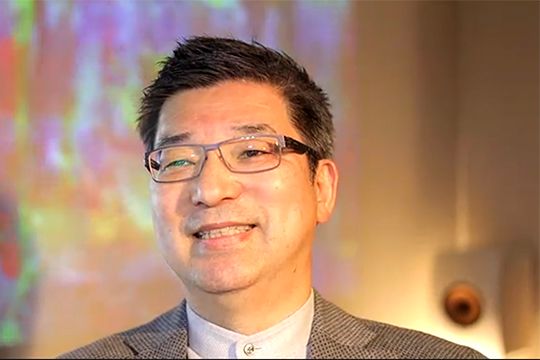

I believe that anyone involved in the digitization of finance, whether they are a licensed lawyer or not, must definitely have the skills to understand and plainly explain the regulations and limits and put them into computer parameters. At Digital Wallet, I actually feel that not only I but also the development members fully understand this.
Chatani: Recently, management has been increasingly discussed in computer terms. My impression is that changes are occurring in the form of corporate operating systems and API-like functions, that the evolution of computers has become the mainstream in a sense, and that we’re re-mapping the form of management accordingly.
That’s why I think it’s "spot on" to say that we must understand the regulations and be able to incorporate them into the parameters.
Miyakawa: Whether you study source code or not, it seems the ability to determine requirements and specifications and to put them into parameters are required for DX management.
What Needs to Be Done in the Age of Interacting with Data?
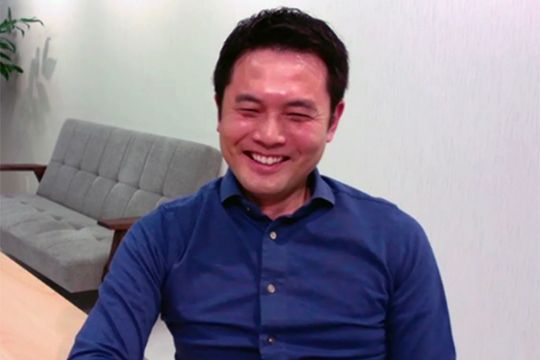

Chatani: The shift in thinking toward DX management, as you mentioned earlier, may not be achieved overnight. For example, when it comes to the promotion of DX and the introduction of AI at general companies, it’s not uncommon for them to find themselves "not knowing what exactly they need to do.” We often see cases where the top management has a sense of urgency that something must be done but when they instruct their front-line staff to "do something," they don’t know what to do or what’s required of them in the first place, and this leads to a situation where "the company begins to self-search.”
In your case, you have a clear idea of what you want to do, so I don't think you’ll need to do any "self-searching of your company." However, I guess not many companies are in such a fortunate situation. What approach do you think is necessary to solve this issue?
Miyakawa: I mentioned that we have B2B and B2C businesses, but we’re getting consultation requests regarding DX problems from companies with which we have long-standing B2B relationships and so opportunities to help solve problems as a project are increasing.
In today's DX, interfaces are separated by department by modularizing the systems so that data can be viewed by business unit rather than a system integrator putting together more and more systems and designing them as a whole. On the other hand, they are also facing the problem of not being able to see anything without analyzing the data, and it takes a lot of time to hire a consulting firm to do that analysis.
It would be much more efficient for employees to be able to extract big queries directly, for instance, on Google's platform, and to be able to do some analysis on their own. So, we’re helping them do that. In other words, we’re helping companies to become data-driven.
Chatani: It is indeed very important that people who have questions can extract and analyze data on their own. There’ll probably be some trials and errors but I think we live in an age where we have to be able to go through a series of steps by ourselves, such as looking at the results by changing the parameters, forming a hypothesis from a fresh dimension, and verifying it.
Secondary information organized by someone else can end up being too much or too little, or overlooking things. That's why it's important, as you say, to make efforts on your own and get a skin-feeling of the data-driven way of thinking.
Miyakawa: If I were to add something, it would be that we’re now approaching the "age of interacting with data.” This is so with our clients but in all industries, the speed at which clients are leaving a service is increasing. We believe that we’re in an age where if we don’t provide some kind of response within 5 to 10 minutes, they’ll switch to another service.
Chatani: I see. I can actually understand that.
For example, suppose you’re registering to become a new member for a service, and the registration cannot be completed until you open the link in the confirmation e-mail that is sent to you. Then, if the confirmation email is delivered too late, you may forget that you were trying to register, or you may try to open the link later and realize that it has expired. In many cases, such a situation will make you think “I don’t want to go through it again” and give up. In other words, it means that everyone strongly wants things to happen in real time.
Miyakawa: That’s right. I think that it’s already essential for companies to be data-driven and that they’ll have to become even more real-time and data-driven in the future.
Substituting Nonverbal Information Will Be the Last Hurdle
Chatani: It was very stimulating to have a wide range of discussions with you on finance and technology, internationalization and data-driven as well as real-time data-driven digital management. I would like to conclude with a question on a slightly larger theme.
What do you think Digital Wallet and the services you provide will be like in the next 30 or 50 years, and how do you foresee the society surrounding the company changing?
Miyakawa: Regarding our specific services, I assume that in about 30 years, intellectual labor will be more digitized and that there will be no need to move locations. On the other hand, service and experiential businesses such as travel and restaurant businesses will probably be revitalized. For those who don’t have to move in their work and those who work digitally, it may not be uncommon for them to receive their salaries globally and to settle their payments in international currencies. If this happens, we believe that services like ours that support international currency transfers will become quite popular.
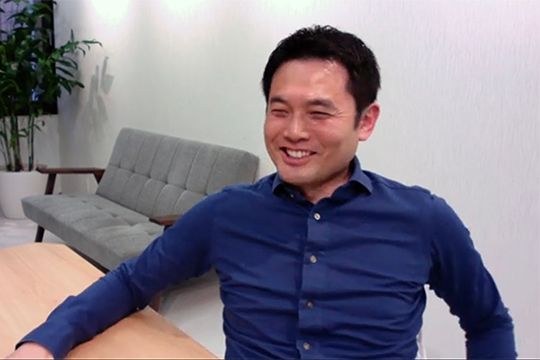

Regarding what our services will be like in 30 to 50 years, we see our services penetrating the market in line with the growing number of essential workers and those who are involved, for instance, in the travel industry and need to move physically.
These days, more and more tasks can be automated and more work can be delegated to computers. On the other hand, "fantasizing" is a task that requires people. I feel that 50 years from now, people will be looking for something creative and emotional, and something that suddenly throws a "curveball" that exceeds their imagination. I feel that this emotional part is essential in the financial world as well, and this will not disappear by any means.
Especially when it comes to "trust,” there are areas that cannot be left to technology.
When doing business with foreign banks, there were multiple occasions when the president of the bank came out to meet with ventures like ours. They assess my personality by having interactions between families and bring our children together to see how it goes. During these occasions, they scan each other’s past history based on the person's family structure, atmosphere and behavior in the moment. I often think about how we can gain the trust of the other party because we’re a venture company, but I felt that they place great importance on our presence and in the way we communicate as human beings.
Chatani: I guess that’s proof that nonverbal information is very important.
I understand that information that cannot be digitized is actually important and that such information is especially essential for making more responsible decisions.
Miyakawa: That will probably be the last hurdle for doing business by creating a financial credit score.
Chatani: We often say about innovation, "it’s while it cannot be explained that it has value.” This means that there is great value and potential in what we can sense with our skin but cannot explain, in other words, the value only lasts until we can verbalize it. The root of this and your episode seemed very similar. Things that can be explained are transmittable, so we can do whatever we want with them, but things that cannot be explained yet are impossible to imitate.
However, I believe that there is potential for great innovation in this area. In the case of Digital Wallet, it’s very inspiring to know that even though you have the word "digital" in your company name, it’s the non-digital aspects that are important after all.
Miyakawa: I think so too. As I mentioned briefly in the first half of this discussion, the applications and customer support we provide are very high-touch, and there are many areas where we are purposely providing manned services. For call centers, in particular, we have a system to connect to Ho Chi Minh in Vietnam if we need to respond in Vietnamese, and to Manila in the Philippines if the customer is originally from the Philippines, even if the inquiry is English.
Those who have left their home country seem to get a good feeling when they receive a customer support call from their home country or when their contact person is in their home country.
In other words, it’s not sufficient to handle all English calls at a call center in Bangalore in India and it’s very important to have speakers in their native region respond to their inquiries. In fact, I believe this will be the crucial point that will determine whether we win or lose in the future.
Chatani: That’s an extremely important factor. Indeed, if there is very high-touch communication, people are inclined to say, "That's why I'm going to use this service."
Miyakawa: There are now calls to promote DX and I believe that this will indeed be the way forward. So where do we go from here? I think that a superior sense of design to incorporate the emotional aspects of analog into digital will be demanded going forward.
Chatani: This sense probably involves the world of art.
Miyakawa: I’m sure it does. With this in mind, we’ve changed our hiring policy from initially focusing on engineers to focusing more on designers. Now that we have a good idea of how to approach the majority of customers, we’re ready to enhance the user experience.
Companies that are able to integrate experience into DX in this way should be the winners in the future.
Profile of Interviewee
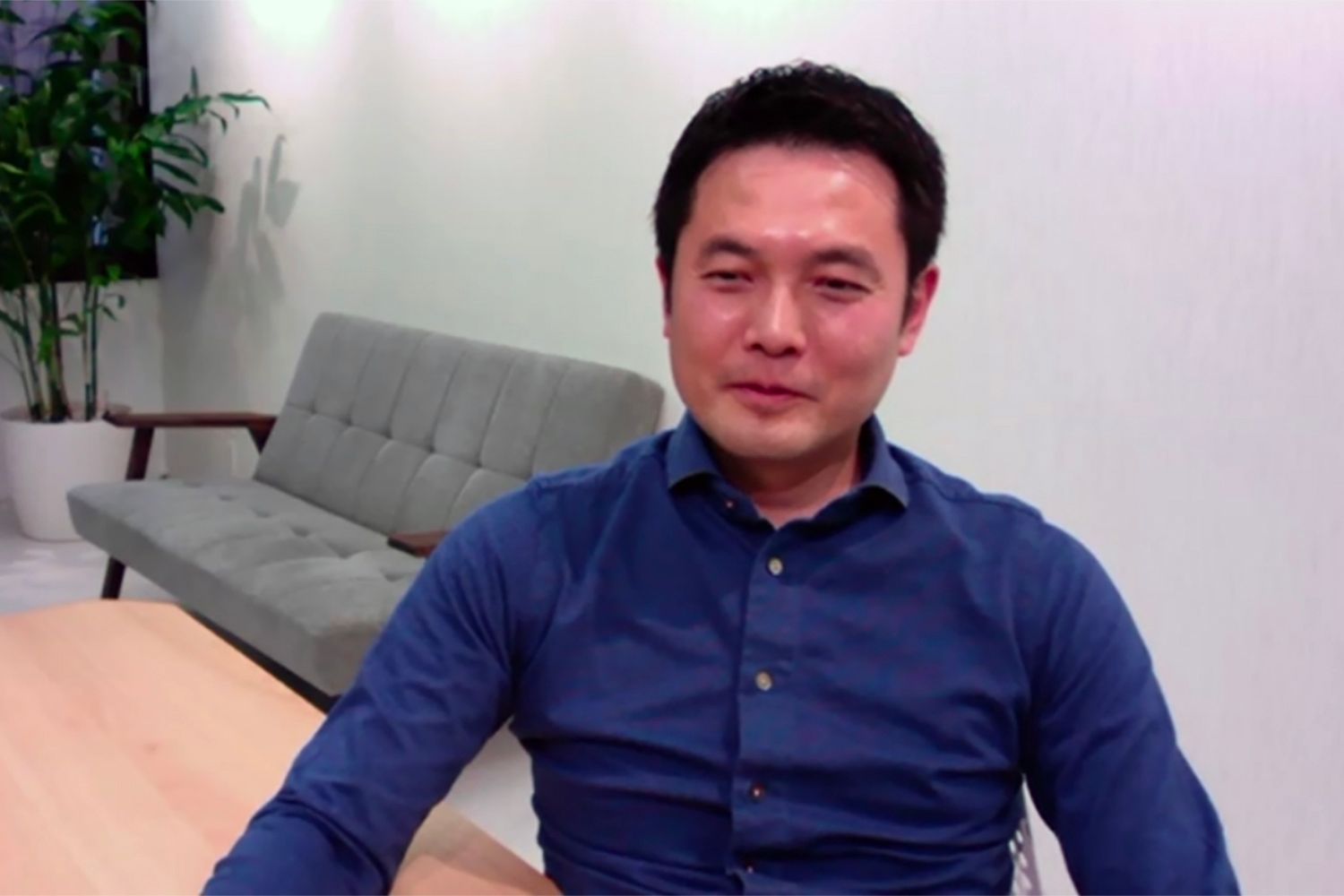

Eiji Miyakawa
Founder & CEO of Digital Wallet Corporation
After starting career as a corporate lawyer, moved to IT business industry at Sony. To create Mobile Wallet business, launched FeliCa Networks as a joint venture company with NTT DoCoMo. After the realization of the development and introduction of Mobile NFC and electronic money in Japan, Europe and United States, led a cloud platform DevOps team in several countries for Sony group products on global basis. Resigned from Sony in 2014 and founded Digital Wallet Corporation (Japan). After 3 years from launching service, succeeded to grow its mobile global remittance service as the Japan's No.1 business. Digital Wallet Group became a global fintech business entity in US, Canada, EU, Singapore, Philippines, Vietnam, Indonesia etc. with excellent talents from over 10 different countries. Attorney at law licensed in Japan. Licensed Lawyer.
Follow us on KPMG Ignition Tokyo LinkedIn for the latest news.
Connect with us
- Find office locations kpmg.findOfficeLocations
- kpmg.emailUs
- Social media @ KPMG kpmg.socialMedia



